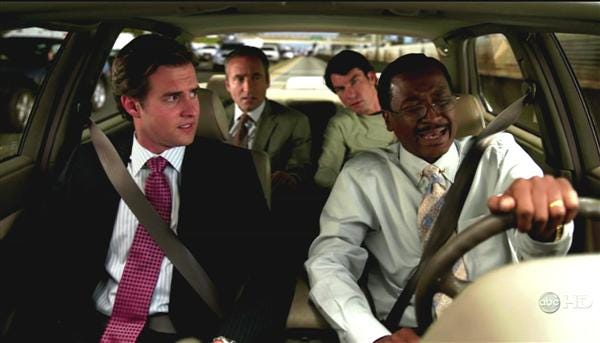So What, Who Cares (vol 2, issue 42) How to find love, the modern way
Hello! Many of you will be reading this on April Fool's. I want to assure you -- there are no pranks or jokes or fake ha-ha-Internet pranks in this newsletter.
*

Want a long and happy relationship? Engage in casual sex. Or so say Match.com researchers who studied 25,000 single people and noted that today's singles model something one author called "fast sex, slow love."
In the five-year study, a majority of single men and 50% of single women reported engaging in a one-night stand, and a majority of single men and 50% of single women reported engaging in a "friends with benefits" situation. In both casual-sex categories, over a quarter of participants ended up in a stable, committed relationship with their casual-sex partner.
So what? Study author Dr. Helen Fisher says that the progression of modern/liberal courtship patterns -- casual sex, friends with benefits, cohabitation and partnerships marked by pre-nups -- are conducive to long-term love because a cautious commitment pace allows feelings of deep attachment to develop over time. Her conclusion:
Rapidly committing to a new partner before the liquor of attachment has emerged may be more risky to long-term happiness than first getting to know a partner via casual sex, friends with benefits and living together. Sexual liberalism has aligned our courtship tactics with our primordial brain circuits for slow love.
Who cares? Demographers, sociologists and other people who are keenly interested in how shifting courtship and commitment patterns affect everything from economic trajectories to purchasing patterns to lifestyle modifications. And somewhere, there is a self-help author who's already finishing the proposal for a book on the merits of fast sex, slow love.
*
If you're a lower-income worker, your commute may be eating your life. A recent Citylab story on the New York City public transit system noted that workers in lower-wage jobs—nurses, home health aides, maids, housekeepers and security guards -- had the longest commutes. And now, a KQED story highlights a growing phenomenon in the San Francisco Bay Area: lower-income workers who can't afford to live where their jobs are, and so have to do things like commute nearly six hours every day in order to get to where the work is. How did this happen? It's estimated that every high tech job in the Valley creates five service jobs -- but the real estate development doesn't reflect the job/income ratio in the slightest. Nor are the existing residents in Silicon Valley inclined to approve affordable housing.
So what? While there is one upside to a commute -- some folks find it to be a necessary buffer between their work and home lives -- there's a lot of evidence suggesting that lengthy commutes are bad for your health. As the New York Times reported in 2013:
[A] report, published last year in The American Journal of Preventive Medicine by Christine M. Hoehner and colleagues from the Washington University School of Medicine in St. Louis and the Cooper Institute in Dallas, provided causal evidence for earlier findings that linked the time spent driving to an increased risk of cardiovascular death. The study examined the effects of a lengthy commute on health over the course of seven years. It revealed that driving more than 10 miles one way, to and from work, five days a week was associated with an increased risk of developing high blood sugar and high cholesterol. The researchers also linked long driving commutes to a greater risk of depression, anxiety and social isolation, all of which can impair the quality and length of life
Who cares? People who want a healthier community. If people cannot afford to live close to their jobs, their health suffers -- and we all bear the costs directly or indirectly. A diverse economic base and a heterogeneous community is actually better for people's mental and physical health. It's also good for economic mobility. Without a mix of housing, economic segregation can persist and the effects of poverty can reverberate across multiple generations.
*

Today's pop culture note: Sure, people have been talking about The Jinx -- it is basically this year's True Detective in terms of "HBO limited-run shows that people do not shut up about."
I say, why not confuse things further by talking about the noir comic series Jinx by Brian Michael Bendis? When I dove into the collected series, my first thought was, "This is the Stephanie Plum mysteries crossed with Drive, with a healthy soupcon of fin de siecle comic-book art thrown in on the side." That was pretty much my second thought too -- the book is about bounty hunter Jinx Alameda, her alliance with a woefully incompetent conman named Goldfish, and their pursuit of the big score that will let them start new lives.
Jinx is funny, dark and gorgeous. Best of all, there's a lot of used copies of the trade paperback on Amazon, so you can read the whole series for less than $10.
*
Are there typos? I apologize in advance. The only editing class I did not get an A in was copyediting.
Did you miss an issue of So What, Who Cares? The archive is here.
Would you like a run-down of all the books and other pop culture picks ever mentioned in this newsletter? Then check out the Pinterest board. (Note: None of the links are affiliate links; I do not make money off anything I link to.)
If you really like So What, Who Cares?, tell a friend to subscribe.


